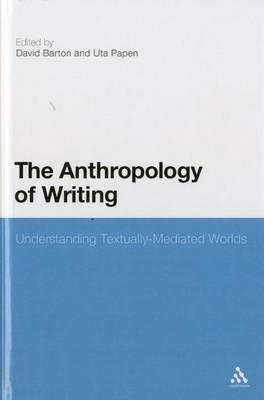Overview
The studies included in the book examine quotidien acts of writing and their significance in a textually-mediated world. We live in a textually-mediated world where writing is central to society, its cultural practices and institutions. Writing has been the subject of much research but it is usually highly visible and valued texts that are studied - the work of novelists, poets and scholars. The studies included in this book examine everyday acts of writing and their significance. Ordinary quotidian writing may be viewed as mundane and routine, but it is central to how societies operate and the ways individuals relate to each other and to institutions. Examples discussed in the book include writing in areas such as farming, photo-sharing, childcare work and health care. The chapters are united in their approach to examining this writing as cultural practice. The book also brings together two important traditions of this type of study: the Anglophone and Francophone. The work of French scholars in this field is made accessible for the first time to the Anglophone world. The insights and research in this collection will appeal to all linguists, anthropologists, sociolinguistics and cultural theorists.
Full Product Details
Author: David Barton , Uta Papen
Publisher: Continuum Publishing Corporation
Imprint: Continuum Publishing Corporation
ISBN: 9781441136718
ISBN 10: 1441136711
Pages: 288
Publication Date: 07 June 2010
Audience:
College/higher education
,
Postgraduate, Research & Scholarly
Format: Electronic book text
Publisher's Status: Active
Availability: Not yet available 
This item is yet to be released. You can pre-order this item and we will dispatch it to you upon its release.
Table of Contents
Part 1: The anthropology of writing: writing as social and cultural practice; 1. What is the 'anthropology of writing'? David Barton and Uta Papen (both University of Lancaster, UK); 2. Acts of writing: when writing is doing, Beatrice Fraenke (EHESS, France); Part 2: Writing in the workplace - institutional demands; 3. Updating a biomedical database. David Pontille (EHESS, France); 4. Balancing demands from system and situation: literacy practices in a childcare workplace, Karin Tusting (University of Lancaster, UK); 5. Tracing cows: practical and administrative logics in tension, Nathalie Joly (EHESS, France); Part 3: Writing by individuals and institutions; 6: Vernacular spaces on the web. David Barton (University of Lancaster, UK); 7. Keeping a personal note-book in rural Mali: Practice, genre and the materiality of writing, Aissatou Mbodj-Pouye (EHESS, France); 8. Writing and being written about: patients as writers and recipients of health texts. Uta Papen (University of Lancaster, UK); Part 4: Historical perspectives; 9. Using Edwardian postcards to study ordinary writing, Julia Gillen and Nigel Hall (University of Lancaster, UK); 10. Legal and illegal forms of public writing in 17th century France, Anne Beroujon (UPMF Grenoble, France); 11. Writing illness: the diary of a doctor treating morphine addict in late nineteenth century France, Philippe Artieres (EHESS, France); Afterword: Current themes in the anthropology of writing. Brian Street (King's College London, UK); Bibliography; Index.
Reviews
Author Information
Professor David Barton is Director of the Lancaster Literacy Research Centre, Lancaster University, UK Dr Ute Papen is Senior Lecturer in Literacy Studies at Lancaster University, UK.
Tab Content 6
Author Website:
Customer Reviews
Recent Reviews
No review item found!
Add your own review!
Countries Available
All regions
|




